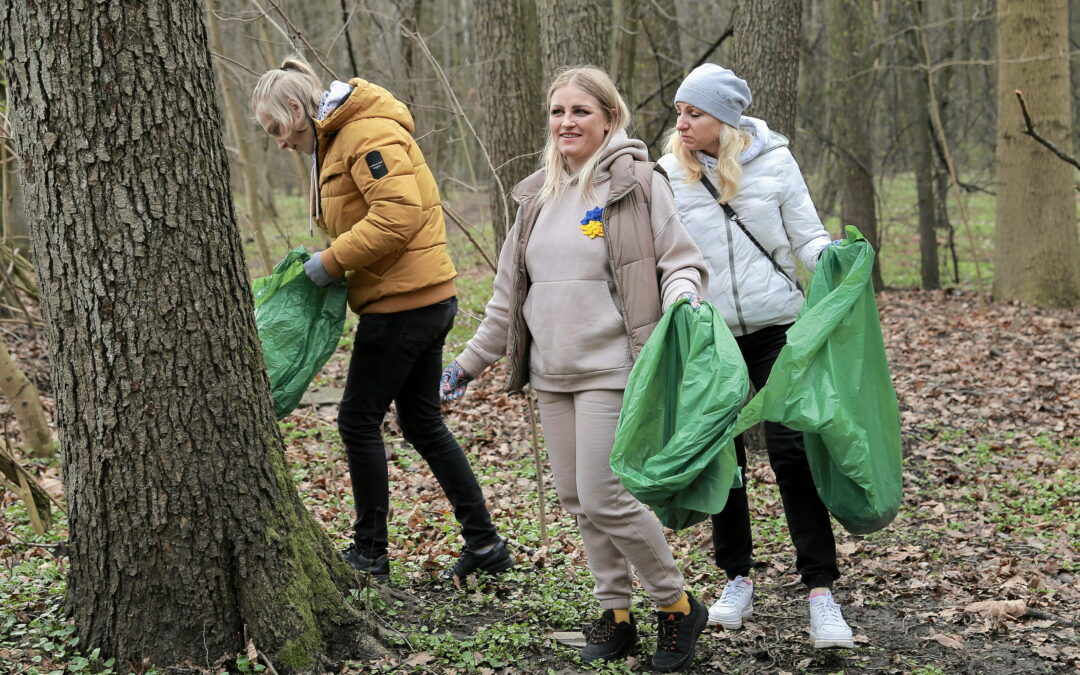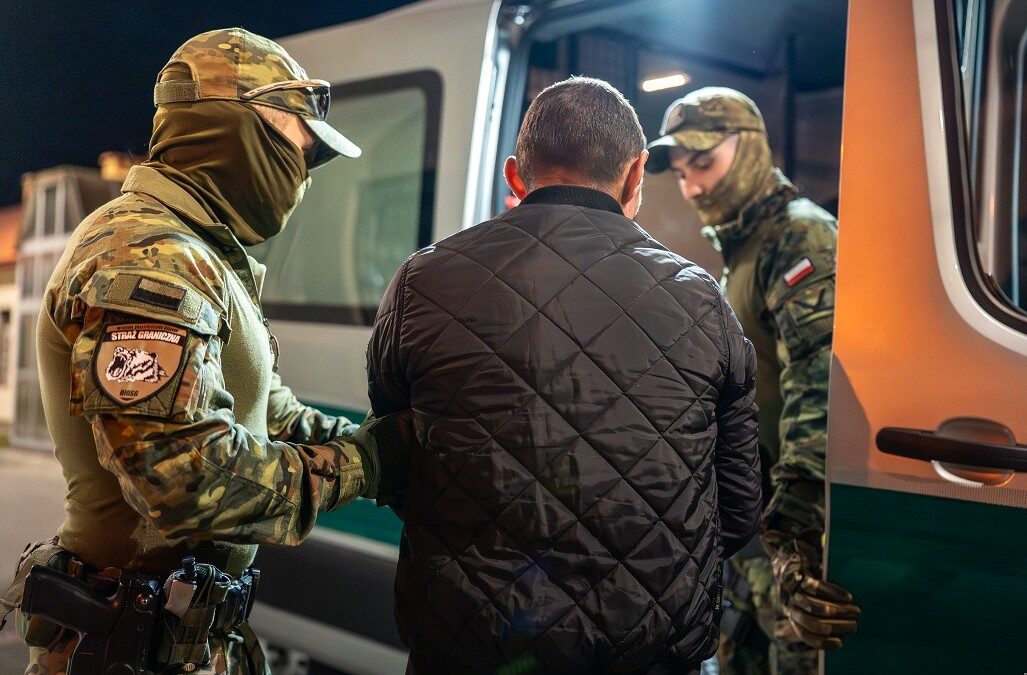Ukrainians have been cleaning up parks, forests and other public spaces around Poland as a way of expressing gratitude to the country for receiving over two million refugees from their country since Russia’s invasion.
In a tradition known as subotnik – coming from the name for Saturday, subota – Ukrainians tidy up homes and other places on Saturdays. Last month, a group of refugees brought that tradition to Suwałki, the Polish city that is hosting them, where they tidied up a local park.
The practice has now spread, and this weekend saw similar actions take place across the country. In Wrocław, around 50 people collected rubbish from around a pond, reports local news service Nasze Miasto.
“You helped us; we want to do something for you,” said Nicola, one of those involved. Like many of those involved, he is a Ukrainian who has already been living in Poland several years, not a recent refugee, but wanted to show gratitude for the welcome shown to his compatriots fleeing Russia’s war.
“We want in this way to thank Poles for helping our compatriots fleeing the war,” said another participant, Daria Onipchenko, who has also lived in Wrocław for several years.
"Subotnik" w Poznaniu https://t.co/NAt0Cu44V1
— Wyborcza.pl Poznań (@poznan_wyborcza) April 9, 2022
In Poznań, several dozen people came to clean up the Śródka neighbourhood, reports Gazeta Wyborcza. “This is our symbolic thank you to Poles for their help,” said Oleksandr Shevchenko, a Ukrainian who has lived in Poland for five years. A similar action was organised in the city a week earlier.
“We know that such cleaning once a week is probably not much,” said Lena Bondarenko, who has lived in the city for three years and recently brought her mother and sister over to join her. “But we want to say thank you. We have been really well received in Poznań.”
Similar clean-up drives took place in three forests around Warsaw on Saturday, as well as in Kraków, Gdańsk, Katowice, Łódź, Szczecin, Białystok, Lublin and Rzeszów.
Wiecie, że nasi Goście z 🇺🇦, którzy z powodu wojny znaleźli się w 🇵🇱, jutro organizują kolejny #subotnik? Czyli sprzątanie polskich miast w czynie społecznym. Chcą w ten sposób podziękować 🇵🇱 za ich gościnność i pomoc. https://t.co/rYAI6wLXKt pic.twitter.com/ED5qcuZnUR
— Miasto Ursynów 💙💛 (@MiastoUrsynow) April 8, 2022
The tradition of subotnik began in the Soviet Union around a century ago and then later spread to other Eastern Bloc countries, including Poland. However, while in Poland the term disappeared after the fall of communism, in Ukraine it continued.
However, “it no longer has a propaganda overtone”, as it did in Soviet times, Shevchenko told Gazeta Wyborcza. “Just whole families went out to the streets and squares to devote their free time to the local community,” he explained. “And afterwards, there was time for meetings, conversations, like at a picnic.”
Since Russia’s invasion of Ukraine, over 2.5 million people have crossed the border into Poland. While some have subsequently moved on to other countries and others have since returned home, over half that number currently remain in Poland.
Main image credit: Agnieszka Sadowska/ Agencja Wyborcza.pl

Daniel Tilles is editor-in-chief of Notes from Poland. He has written on Polish affairs for a wide range of publications, including Foreign Policy, POLITICO Europe, EUobserver and Dziennik Gazeta Prawna.




















